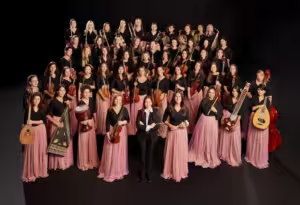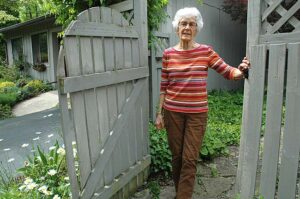Here’s some news to start your week!
In July, 2024 the all-female Firdaus Orchestra of Dubai performed for two days as part of the multi-day wedding celebration of Radhika Merchant and Anant Ambani, son of Indian billionaire Mukesh Ambani. The festivities were a particularly prestigious platform for the young orchestra, which was formed in October 2021 during the World Expo 2020 Dubai and boasts an international slate of musician members. The engagement, held in Mumbai, was the group’s first performance outside of the UAE. They performed Bollywood songs composed by A.R. Rahman (who is also the orchestra’s mentor) alongside some of India’s most famous singers. Performing with A-list singers seems to be par for the course at Firdaus, as does embodying the international spirit of Dubai.
Oboist, self-identified “Queen of Filth,” feminist, and tireless advocate Katherine Needleman has been busy (as always) seeking justice for women in orchestral music. She recently responded to an obituary for Joan Champie, oboist and veteran of both the Curtis Institute of Music and the Baltimore Symphony, with an essay reflecting on Champie’s career and her unfortunately obscure position in the history of both Curtis and the BSO. Champie was the first woman to hold a woodwind position in the orchestra—a distinction that Needleman laments that no one told her about or seems to recognize in the current ensemble.
Before her Baltimore tenure Champie studied with Marcel Tabuteau who reportedly told her that he didn’t “want to waste Curtis’ money on a woman” and that she should find a field of study that would make her status as a woman a non-issue. Champie was no stranger to grabbing life with both hands, as the saying goes. In addition to refusing to allow the men in her field to deter her as a young musician, she kept active and vital into her 80s. For her 60th birthday, she jumped out of an airplane “grin[ning] all the way down.” Needleman’s response shows the kind of positive influence figures like Joan Champie have on the women who come after them and highlights how entrenched archaic views about women are in institutions of classical music—including, but not limited to, orchestras.
In the same vein, things are heating up in the Tuba/Euphonium courts—also thanks to Needleman’s efforts. (Follow/subscribe to her Substack to keep up with of her activism). During her analysis of the annual Jeju 2024 International Brass and Percussion Competition she reported that the competition’s continued substandard representation for non-white and non-male composers and jurors is disturbing and appears intentional. She and other activists have voiced similar criticisms in recent years. Needleman has publicly taken the 2024 festival coordinators to task for the usual representation problems as well as for publicly platforming and celebrating the work of tubist and composer Mike Forbes who has been dismissed from his previous college teaching appointments because of proven instances of sexual misconduct with students. The most recent case is public, and can be viewed online.
On August 13, women composers and performers took significant honors at the 2024 Art Music Awards in Naarm/Melbourne. The awards included recognition of the best individual pieces and performances (separated by genre) as well as awards recognizing cross-cultural and collaborative projects and contributions to leadership and mentorship. The full list of awards and winners can be viewed here.
The Groupmuse Cooperative announced that on September 15 they will present “Women Composers from the Belle-Epoque,” an informal concert featuring French female composers at the turn of the twentieth century, at Stone Canyon, Round Rock (north of Austin, TX). Groupmuse organizes concerts in non-traditional spaces with the hope that both the spaces and the music will bring enthusiastic listeners together. Leading the program will be Dr. Jeanne Hourez, who will present music by Mel Bonis (excerpts from Legendary Women), Marguerite Canal (Mediterranean Sketches), Lili Boulanger (3 pieces for piano), and Nadia Boulanger’s Vers la vie nouvelle (Towards the new life), her moving reflection (for solo piano) on loss, grief and healing.
As a preview, here is Dr. Jeanne Hourez, performing Marguerite Canal (1890-1978) Esquisses Méditerranéennes (“Mediterranean Sketches,” c. 1930) Recorded Live at the Butler School of Music, University of Texas at Austin, April 2024.
Let us know what you’re listening to! Write to us at info@wophil.org



